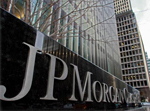“Gibberish and Alleged Untruths” — The London Whale Fiasco Explained
Finding time to read through a 300-page report or view hours-long Senate testimony of JPMorgan executives and regulators may be too much for many people — even those who are closely following the US$6 billion London Whale trading loss saga. Even if you think you have read everything on the topic, there are two articles you don’t want to miss. These articles show how the obfuscation of facts and alleged untruths played leading roles in the debacle.
“Masked by Gibberish, the Risks Run Amok”
In this New York Times article, Floyd Norris asks whether anyone can manage a big bank, or should it be concluded that “playing in the modern world of derivatives is best left to those whose survival is not critical the nation’s economy, and who do not benefit from government-backed insurance?”
Norris dives into the Senate report on the JPMorgan trading loss to answer this question. He also highlights how the jargon used by Bruno Iksil, the whale, was seemingly confusing to executives responsible for approving the trades.
There is much for investors to consider from Norris’ article. The questions he raises are fascinating, and the article closes with the Nick Leeson/Barings Bank fraud that was helped by executives who were afraid to ask basic questions for fear of looking stupid.
“JPMorgan Silent Partner Revealed in Whale Fiasco”
In a recent Bloomberg article, Jonathon Weil paints a better picture of whose side the regulators were on during the early days of the debacle by examining the testimony by JPMorgan executives and regulators before the Senate. Weil concludes that “regulators didn’t merely keep quiet while JPMorgan spread falsehoods. Their silence made them complicit.”
Perhaps the most interesting line penned by Weil is his rebuttal to the U.S. Office of the Comptroller of the Currency’s (OCC) explanation that it was prohibited from divulging confidential exam information of what it knew about any alleged untruths told to the public by JPMorgan’s CFO Doug Braunstein.
According to the article, OCC spokesman Robert Garson said, “Our mission is safety and soundness, and we don’t divulge confidential exam information.”
To which Weil responds, “Never mind that Braunstein had been speaking on a public conference call. There wasn’t anything confidential about it. Plus, information can’t be confidential if it isn’t true — because it’s made-up and doesn’t exist.”
Weil’s comment is both original and offers a counterargument to the OCC’s statement. Not to mention it’s a very keen observation about whether made-up information really exists. But that’s a topic for another blog.
If you liked this post, consider subscribing to Market Integrity Insights.
Photo credit: Reuters

